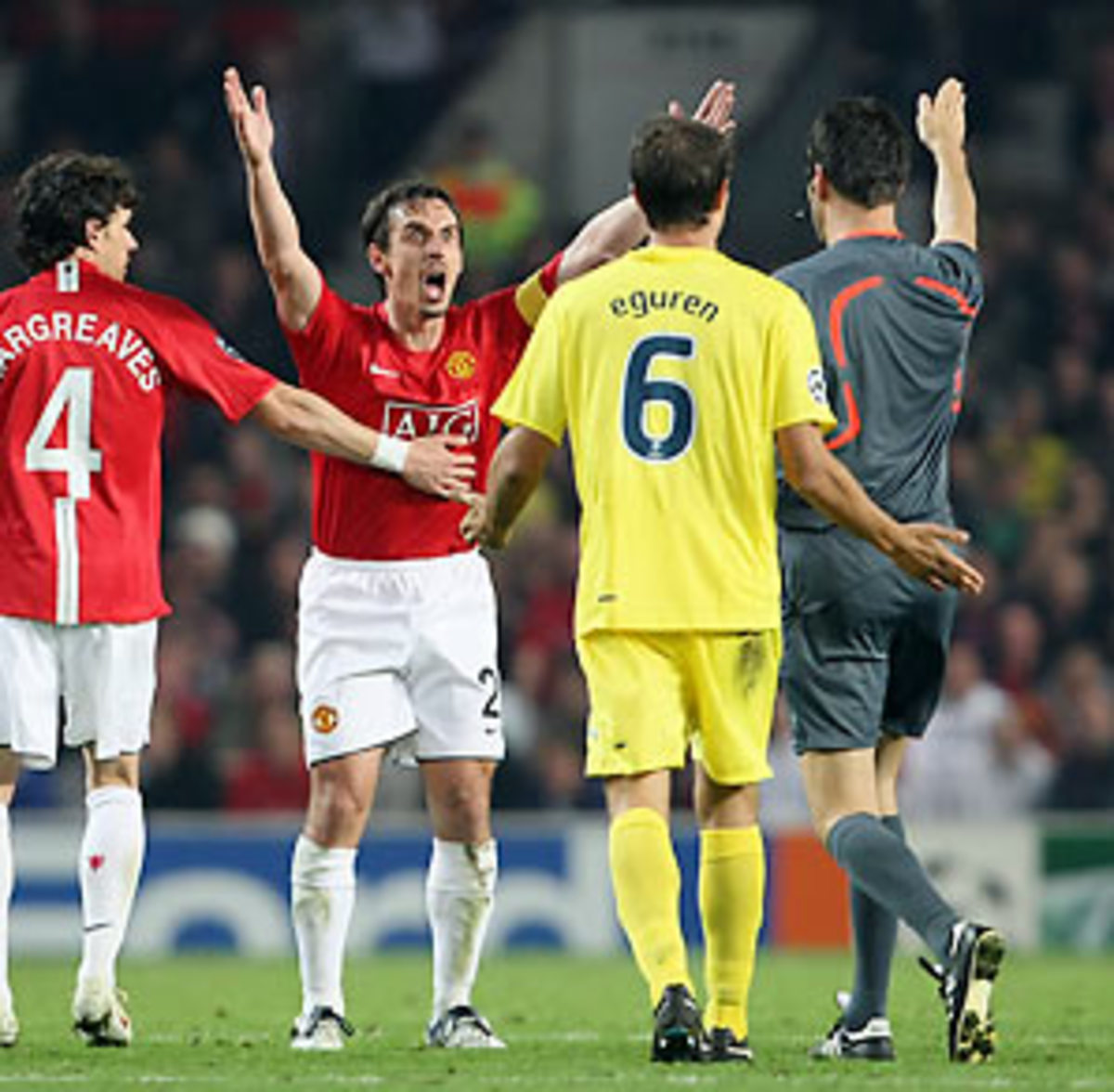Further review on instant replay
Both are intelligent men who have done so much for the game, and trading barbs via the media -- assuming Platini wasn't misquoted -- is somewhat beneath them. That said, Platini's comments on video replays during matches bear a bit further examination. His objection to using technology wasn't necessarily philosophical (the sanctity of the referee's authority and all that jazz). It seemed to be practical.
"It would slow the game down, there would be constant interruptions, nobody know how it would work," Platini reportedly said. "Besides, the beauty of football is that you can get results like we had in the Champions League, with a smaller club like CFR Cluj beating Roma at the Stadio Olimpico."
Leaving aside that Cluj's victory had nothing to do with technology or refereeing mistakes (Cluj was simply much better that night), I can help Platini out with the first part of his "problem." It just takes a bit of common sense and some serious thinking about how video-replay technology could work. And that means studying those sports where it has been used successfully, like the NFL and Rugby League. What follows is a modest proposal of how we could make it work.
First, you decide what calls can be reviewed. If you limit it to penalty incidents, fouls which lead to bookings or red cards and whether the ball has crossed the goal line, you're off to a good start. Those episodes tend to decide games. Offside calls are somewhat more problematic. If the ball crosses the line in a disputed offside situation, the temptation would be to use video evidence to correct the call.
But that's dangerous because it raises issues of what happens when a linesman signals for offside and everyone stops, even though the attacker may be on-side. What do you do then? You can't keep playing until the play is dead in every single offside situation. So best not to use video replays at all to judge offsides. Instead, let's limit it to penalty incidents, yellow and red cards and whether a ball crosses the goal line.
Second, what do you do about Platini's big fear, constant interruptions? That one's rather easy. You borrow a page from the NFL. Each team would get a certain amount of "challenges" per match -- say, one per half. Somebody from each team would watch the game on a monitor and, when something controversial happens, could issue a "challenge" by alerting the fourth official. He would then alert the referee, who would review the replay.
Third, you have to decide on what basis the call can be overturned. Here, it's simple. Just adopt the NFL language. The video evidence has to be "clear" and "indisputable." (So, no, England's goal in the 1966 World Cup final would not be overturned).
And the referee would be the one making that judgment. He'd have, say, 60 seconds to watch the replay from a number of different angles and make his decision. That way, the game would be slowed down by a maximum of 10 to 12 minutes (assuming all four "challenges" are made and the referee waddles, rather than runs, to the sideline to watch the replays.
Is this system perfect? No, not at all. For starters, you could only do it at games where TV cameras are present (which would include virtually all top-flight matches, but not amateur, women's and youth games). FIFA likes the idea that all soccer is played under the same rules but, in this case, an exception is probably worthwhile, especially since blown refereeing calls during non-televised games don't tend to cause worldwide controversy.
Second, the amount and quality of replays would probably differ, even within the same league (Barcelona vs. Real Madrid is generally covered by 18 cameras; Getafe vs. Sporting Gijón probably doesn't get more than eight). But so what? Something is better than nothing and, crucially, it's a level playing field for both teams on the pitch.
Third, there will obviously be a number of decisions which are inconclusive. Again, so what? You're not going to get 100 percent accuracy, this isn't supposed to be a fail-safe process; rather, something which minimizes wanton errors.
The nice thing about this is that it leaves the responsibility and ultimate control in the hands of the match official, without slowing things down. This kind of technology exists, why not use it?
Especially since -- though it'll never admit it -- FIFA has not only used it before, it used it in the biggest game of them all: the 2006 World Cup final. Go watch what happened immediately before and after Zinedine Zidane's headbutt on Marco Materazzi (it's all over YouTube) and you'll see it's pretty clear that the fourth official signaled to the match official. (Which, incidentally, he wasn't supposed to do).
Let's move the debate on from silly "what-ifs" and let's make a concrete plan for how it could work. And then, let's evaluate whether it's something we do or do not want. Personally, I could probably do without it. But the only way we can decide is if we come up with clear rules about its implementation.





